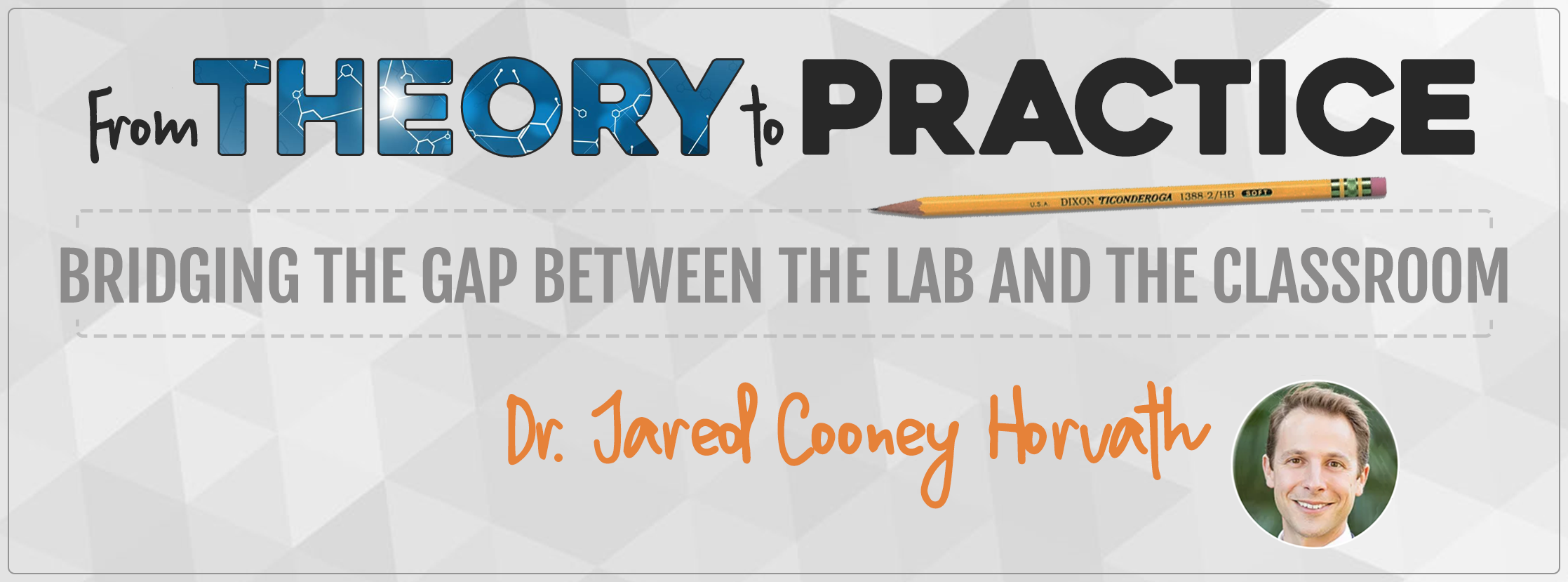

In this new article series aimed at teachers and educators, Science of Learning expert Dr. Jared Cooney Horvath addresses some of most practical questions facing education.
Q: IS TECHNOLOGY KILLING OUR MEMORY?
Here’s an illustrative question that will only work for readers of a certain age: What was your childhood telephone number?
Chances are you had no problem coming up with the answer … despite the fact that you probably haven’t dialed those digits in decades.
Now try this one: What is your current partner’s cell phone number?
I’m guessing you have no clue … even though you’ve likely called and/or texted your partner dozens of times over the past week.

Surely this is a sign that technology is killing our memory -- right?
Well, not really. If technology is killing our memory, then why can you remember your childhood phone number? Shouldn’t that have faded away years ago from the corrosive effect of technology?
Put simply, technology does NOT appear to be harming our memory in any way, shape or form. Instead, it is simply re-defining what type of memory we favor.
31 FLAVORS
Memory comes in several distinct forms.
For instance, procedural memory is our ability to remember how to perform actions -- like swimming or riding a bike.
Working memory is our ability to hold information in conscious awareness for short periods of time -- like mentally repeating a password or lock combination.
Within education, we typically focus on declarative memory. This is our ability to remember names, dates, facts, etc. -- those things that students (rightly or wrongly) are usually tested on.
There are two different ways to access declarative memories: recognition and recall.
Q: Which of the following characters is Frankenstein’s Monster:

This is an example of recognition. In this instance, relevant information is stored and presented externally. All you must do is glance at each image and decide which matches the question -- no internal resources required.
Q. What is the capital of Germany?
This is an example of recall. In this instance, you must come up with the correct answer using purely internal means -- no external assistance involved. To correctly answer this question, relevant ideas and facts must be stored within your brain.
BRINGING IT TOGETHER
To understand how technology is impacting your memory, consider this: are you able to look-up your partner’s phone number?
Technology does not destroy our ability to retain information -- it simply makes it incredibly easy to externally store and access information. As such, technology favors recognition … and, when we utilize technology, so do we.

Interestingly, externalized memory storage still requires us to employ internal recall. Even though you may not be able to recall your partner’s number by rote, you can certainly recall where it is stored and how to access it.
When individuals know they can access facts externally, they typically display weak recall of those facts, but strong recall for the location of those facts. Conversely, when the same individuals know they cannot access facts externally, they typically display strong recall of the facts themselves.
In both instances, something has been memorized. It’s simply that the nature of the 'thing' will change based on the attendant technology.
SO NOW THEN …
Technology is not killing our memory -- it’s simply changing the form of memory we rely on.
For teachers, then, the question isn’t what impact technology is having on our student’s memory. Instead, it’s what type of memory do you want your students to exercise?
Sometimes the answer might be recognition.
For instance, if you’re interested in students recognizing novel math equations, you may want to embrace external technology storage.
Sometimes the answer might be recall.
For instance, if you’re interested in students applying math equations, you may want to forego technology in lieu of other, more ‘traditional’ approaches.
As always, context should drive strategy.

DID YOU ENJOY THIS ARTICLE?
Help spread the idea by sharing it with your peers and colleagues ...

Not on the list? Click below to join the LME Community ...
Connect With Us
Copyright © 2022 LME Global – 6119 North Scottsdale Road, Scottsdale, AZ, 85250 – (702) 970-6557
Copyright © 2022 LME Global
6119 N Scottsdale Rd, Scottsdale, AZ, 85250
(702) 970-6557
